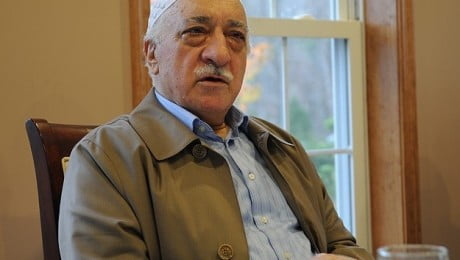Keyword: Freedoms

Ankara’s soft-power dilemma
Turkey’s major assets in terms of successful diplomacy and soft-power policy included Turkish schools opened by the Hizmet movement all around the world; the International Turkish Language Olympiads organized by the same group; business associations within and outside the borders of Turkey; intercultural and interfaith dialogue societies; foreign language publications of Turkish society; Turkish hospitals in several countries; and Turkish international humanitarian aid organizations.

Does Erdogan really want Gulen in Turkey?
General assumption is that Erdogan is indeed playing a cynical game with the Gulen issue, and also involving the United States in this, in a populist effort aimed at his own constituency in the lead-up to the presidential elections in August, where he is expected to run.

Mr. Minister, please look at yourself in the mirror
My life changed since I asked two critical questions at a conference held last week in Washington, D.C., with the participation of several pro-government journalists and experts from the Foundation for Political, Economic and Social Research (SETA), a Turkish think tank with close ties to the government. Insults about me, my paper and even the social community I am affiliated with were abundant.

Is it a parallel triangle or square?
The content of a secret meeting on Syria was leaked to the media. This paper made a headline back then asking for accountability for the leak as well as the horrible plans discussed at that meeting. What did the prime minister do? Without offering evidence, he declared that the Hizmet movement was the culprit; a few days ago, he admitted that they were unable to identify the perpetrators. So, why did you declare the movement responsible for it?

Academic freedom at universities under growing threat
Süleyman Yaşar, a former columnist at the Sabah daily who has a broad vision regarding the economic policy of the current government, was fired from the outlet for not criticizing the Hizmet movement [the faith-based organization inspired by Turkish Islamic scholar Fethullah Gülen]

New York Times urges Obama not to deport Gulen
In an editorial titled ‘Let Mr. Erdogan Fight His Own Battles’ published on May 2, the New York Times said ‘The American government is obliged to examine the request if Mr. Erdogan follows through and formally files one. But right now the threat seems to be nothing more than a crass and cynical attempt to exploit the law, and Turkey’s alliance with the United States, for political payback.’

Erdoğan escalates elimination of Gülenists from state [ with no proof of accusations]
Since the Dec. 17 graft probe, hundreds of prosecutors and judges and around 2,500 police officers who the government believes to be close to Gülen have been removed from their posts, and it seems that it is not going to stop there.

Let Mr. Erdogan Fight His Own Battles
Mr. Erdogan is trying to drag the United States into the argument by threatening to demand Mr. Gulen’s extradition to Turkey. Some experts say there is no legal basis for an extradition request because there are no charges or legal cases against Mr. Gulen, who has permanent-resident status and has lived in rural Pennsylvania since 1997.

In Turkey, how Germany’s president became ‘Germany’s imam’
The Gulen movement is primarily a civil society organization, consisting of thousands of teachers, academics, journalists, businessmen and charitable workers. A political attack against their legitimate services and institutions would be disastrous for rule of law and societal peace, both of which have already been seriously compromised in Turkey.

Turkish Extradition Request Could Strain Relations With US
The news that Turkey will officially request that the United States extradite Turkish Islamic scholar Fetullah Gulen is threatening to strain U.S.-Turkish relations. Ankara insists Gulen is behind a conspiracy to overthrow the government. But analysts warn that Ankara may find it difficult legally to secure his extradition.

US avoids commenting on Gülen’s extradition
US State Department Spokeswoman Jen Psaki told reporters at a press briefing on Wednesday that the US will not comment on Prime Minister Recep Tayyip Erdoğan’s expectation for Turkish Islamic scholar Fethullah Gülen to be extradited from the US, where he now lives.





















